May 18 stands as one of history’s most eventful days, witnessing the rise and fall of empires, groundbreaking discoveries, and moments that shaped our modern world across centuries of human achievement.

Politics and Government Events on May 18
1917 – Selective Service Act Empowers Presidential Conscription
World War I prompted the United States Congress to pass the Selective Service Act, fundamentally transforming American military recruitment. President Wilson gained unprecedented authority to conscript citizens for military service.
This legislation marked a decisive shift from volunteer armies to mandatory military service during wartime. The act would serve as the foundation for future draft systems throughout the twentieth century.
1933 – Tennessee Valley Authority Established
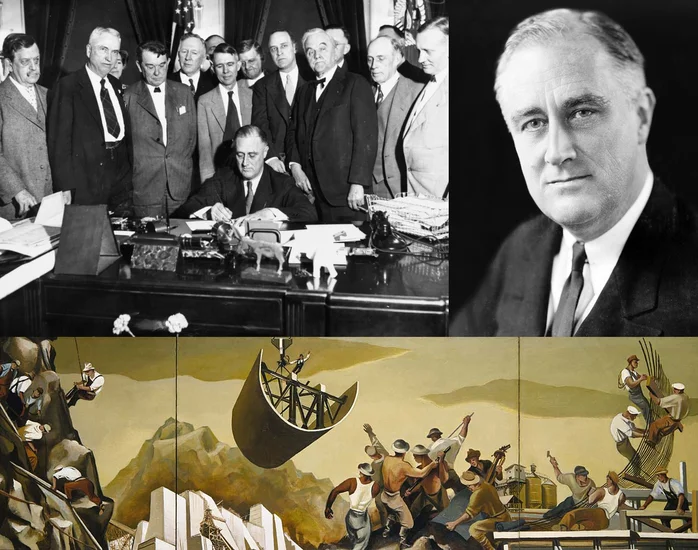
President Franklin D. Roosevelt signed groundbreaking New Deal legislation creating the Tennessee Valley Authority. This massive federal program aimed to revitalize the economically depressed Tennessee River valley region.
The TVA represented one of the most ambitious government initiatives in American history. Its creation sparked nationwide debates about federal intervention in regional economic development.
1948 – First Legislative Yuan Convenes in Nanking
The Republic of China’s First Legislative Yuan officially opened its session in Nanking, establishing democratic governance structures. Chinese political leaders gathered to implement constitutional government amid ongoing civil war.
This historic convening represented efforts to establish parliamentary democracy in China. The legislative body would later relocate to Taiwan following communist victory on the mainland.
1974 – India Conducts Nuclear Test
India successfully detonated its first nuclear weapon under Project Smiling Buddha, becoming the world’s sixth nuclear power. The underground test fundamentally altered South Asian geopolitical dynamics.
Prime Minister Indira Gandhi’s government claimed the test served peaceful purposes. This nuclear achievement intensified regional arms races and changed international diplomatic calculations.
1977 – Likud Party Wins Israeli Election
Menachem Begin’s Likud party achieved a stunning electoral victory, ending decades of Labor party dominance in Israeli politics. Begin became Israel’s sixth Prime Minister, bringing right-wing ideology to government leadership.
This political earthquake reshaped Middle Eastern diplomacy and Israeli settlement policies. Begin’s victory marked the beginning of conservative ascendancy in Israeli politics.
1980 – Gwangju Democracy Movement Begins

South Korean students launched massive demonstrations in Gwangju, demanding democratic reforms and an end to military rule. The protests challenged General Chun Doo-hwan’s authoritarian government.
These courageous demonstrations sparked nationwide pro-democracy movements throughout the 1980s. The Gwangju uprising became a symbol of Korean resistance against military dictatorship.
1991 – Somaliland Declares Independence
Northern Somalia unilaterally declared independence from the rest of Somalia, establishing the Republic of Somaliland. Regional leaders sought stability amid Somalia’s ongoing civil war and governmental collapse.
This independence declaration created a functioning state despite lacking international recognition. Somaliland developed democratic institutions while southern Somalia remained in chaos.
2019 – Joe Biden Launches Presidential Campaign
Former Vice President Joe Biden officially announced his candidacy for the 2020 presidential election. Biden’s campaign focused on defeating Donald Trump and restoring American democratic norms.
The Delaware senator’s announcement marked his third presidential bid after unsuccessful attempts in 1988 and 2008. Biden’s campaign would ultimately succeed in winning the presidency.
Military and Naval History on May 18
1922 – IRA Attacks Belfast Police Headquarters
Seamus Woods led a daring Irish Republican Army assault on the Royal Irish Constabulary headquarters in Belfast. The attack represented escalating violence during the Irish Civil War period.
Republican forces sought to undermine British authority in Northern Ireland through targeted military operations. This Belfast attack demonstrated the IRA’s continued opposition to partition.
1944 – Monte Cassino Battle Concludes
German paratroopers finally evacuated Monte Cassino after seven days of intense fighting in the fourth battle. Allied forces achieved a crucial victory in their advance toward Rome.
The strategic monastery had withstood multiple Allied assaults before finally falling to persistent attacks. This victory opened the path for Allied forces to capture the Italian capital.
1944 – Crimean Tatar Deportation Begins
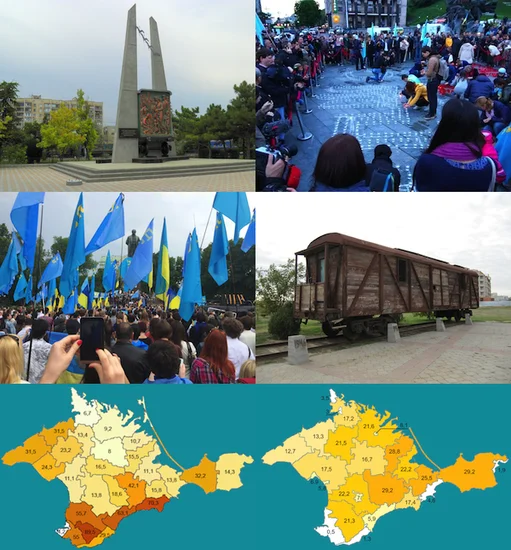
Soviet forces commenced the mass deportation of Crimean Tatars from their ancestral homeland. Stalin’s regime accused the entire ethnic group of collaborating with Nazi Germany.
Thousands of families were forcibly loaded onto cattle cars and transported to Central Asia. This ethnic cleansing resulted in massive casualties and cultural destruction for the Crimean Tatar people.
1955 – Operation Passage to Freedom Ends
The evacuation of 310,000 Vietnamese civilians, soldiers, and French personnel from North Vietnam concluded successfully. This massive operation relocated people fleeing communist rule to South Vietnam.
American and French naval forces coordinated the complex evacuation following the Geneva Accords. The operation highlighted the Cold War’s impact on ordinary Vietnamese families.
1965 – Israeli Spy Eli Cohen Executed
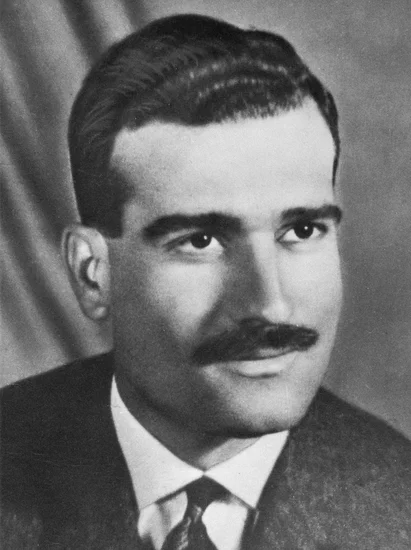
Syrian authorities hanged Israeli intelligence operative Eli Cohen in Damascus after his espionage activities were discovered. Cohen had successfully infiltrated Syria’s highest political circles.
The master spy had provided Israel with crucial military intelligence about Syrian positions on the Golan Heights. His execution eliminated one of Israel’s most valuable intelligence assets.
1994 – Israeli Withdrawal from Gaza Strip
Israeli military forces completed their withdrawal from the Gaza Strip, transferring authority to the Palestinian National Authority. This historic handover marked a significant step in the Oslo peace process.
The withdrawal represented the first time Palestinians gained autonomous control over territory since 1948. Gaza’s transfer sparked hope for broader Israeli-Palestinian peace agreements.
2009 – Sri Lankan Civil War Ends

The Sri Lankan government achieved decisive victory over the Liberation Tigers of Tamil Eelam, ending nearly 26 years of civil war. Government forces eliminated the LTTE leadership in final battles.
This military victory concluded one of Asia’s longest-running ethnic conflicts. The war’s end brought peace but also raised concerns about human rights violations.
Science and Discovery Milestones on May 18
1953 – Jacqueline Cochran Breaks Sound Barrier

Pioneering aviator Jacqueline Cochran became the first woman to break the sound barrier in level flight. Her achievement shattered gender barriers in aviation and aerospace.
Cochran piloted a Canadian-built F-86 Sabre jet to reach supersonic speeds over California. Her historic flight inspired countless women to pursue careers in aviation and engineering.
1969 – Apollo 10 Launches
NASA launched Apollo 10, the final dress rehearsal mission before the moon landing attempt. The crew conducted all lunar landing procedures except the actual touchdown.
This crucial mission tested the lunar module in moon orbit and refined landing procedures. Apollo 10’s success cleared the way for Apollo 11’s historic moon landing attempt.
1980 – Mount St. Helens Erupts
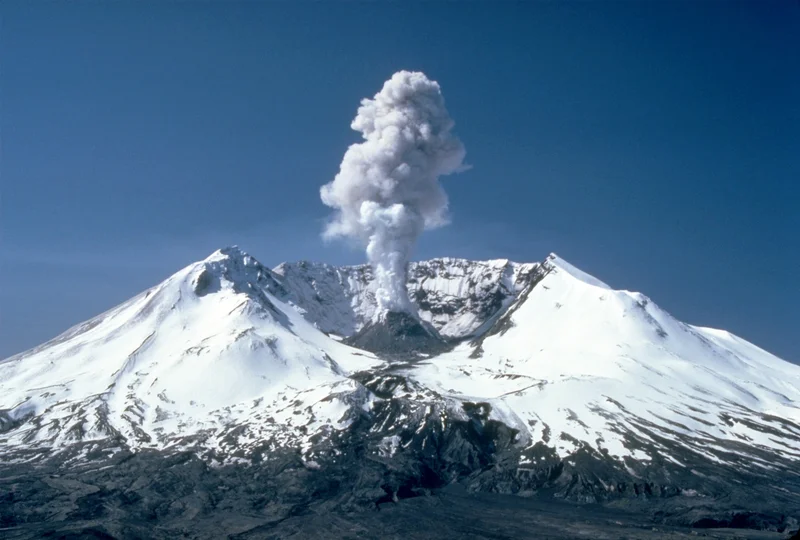
Mount St. Helens exploded in a catastrophic volcanic eruption, killing 57 people and causing $3 billion in damage. The eruption devastated hundreds of square miles of Washington state.
The lateral blast flattened forests and created a massive debris avalanche. This eruption became the most significant volcanic event in United States history.
2005 – Hubble Confirms Pluto’s Additional Moons

The Hubble Space Telescope provided definitive photographic evidence of Pluto’s two additional moons, Nix and Hydra. These discoveries revolutionized understanding of the Pluto system.
Astronomers had suspected additional moons existed around the distant dwarf planet. These findings revealed Pluto’s complex gravitational system and multiple satellite bodies.
Cultural and Arts Events on May 18
1912 – First Indian Film Released
Dadasaheb Torne’s “Shree Pundalik” premiered in Mumbai, marking the birth of Indian cinema. This groundbreaking film launched what would become the world’s largest film industry.
The silent film adapted a popular Marathi play for the silver screen. This historic premiere established India’s cinematic traditions and inspired countless future filmmakers.
1927 – Tongji University Gains National Status
The Nationalist government officially recognized Tongji University as one of the Republic of China’s first national universities. This prestigious designation elevated the institution’s academic standing.
Founded twenty years earlier, Tongji University had developed into a leading center for engineering and technical education. National recognition attracted top students and faculty from across China.
1926 – Evangelist Aimee Semple McPherson Disappears
Famous evangelist Aimee Semple McPherson vanished mysteriously while visiting Venice, California. Her disappearance sparked nationwide media attention and wild speculation.
McPherson had built a religious empire through radio broadcasts and theatrical sermons. Her mysterious disappearance became one of the era’s most sensational news stories.
1972 – Aeroflot Flight 1491 Crashes
Aeroflot Flight 1491 crashed during approach to Kharkiv International Airport, killing all 112 people aboard. The disaster near Ruska Lozova marked one of Soviet aviation’s deadliest accidents.
Investigators determined that crew errors during the landing approach caused the fatal crash. This tragedy highlighted safety concerns within the Soviet airline industry.
1973 – Aeroflot Flight 109 Hijacked and Destroyed
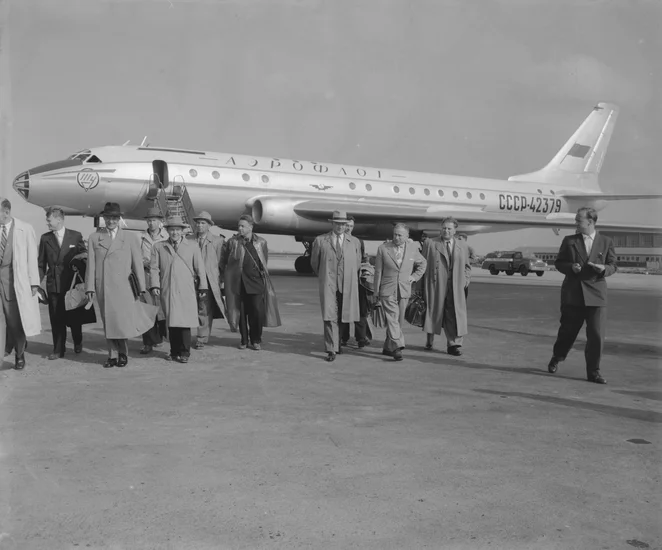
Aeroflot Flight 109 was hijacked mid-flight before the hijacker’s bomb exploded, killing all 82 passengers and crew. The aircraft was completely destroyed by the explosion.
This tragic incident demonstrated the vulnerability of commercial aviation to terrorist attacks. The bombing shocked the international aviation community and prompted security improvements.
1990 – TGV Sets World Rail Speed Record
A modified French TGV train achieved a new world rail speed record of 515.3 kilometers per hour in France. This achievement demonstrated the potential of high-speed rail technology.
French engineers had extensively modified the train and track for the record attempt. The achievement showcased France’s leadership in high-speed rail development.
Religious and Social Events on May 18
1993 – Copenhagen Riots Over Maastricht Treaty
Violent riots erupted in Copenhagen’s Nørrebro district following approval of Danish exceptions to the Maastricht Treaty. Police opened fire on civilians for the first time since World War II.
Protesters opposed Denmark’s European Union membership terms and special exemptions. The violence injured 11 demonstrators and shocked Danish society with its intensity.
2006 – Nepal Curtails Monarchy Powers

Nepal’s post-revolution government passed landmark legislation dramatically reducing the monarchy’s power and declaring the country secular. Parliament stripped the king of most traditional authorities.
These revolutionary changes ended centuries of Hindu monarchy and royal privilege. The legislation marked Nepal’s transition toward republican government and religious neutrality.
2015 – Colombian Landslide Kills 78
Heavy rains triggered a devastating landslide in the Colombian town of Salgar, killing at least 78 people. The disaster destroyed homes and infrastructure throughout the mountainous region.
Rescue workers struggled to reach survivors trapped under massive amounts of debris. This tragedy highlighted Colombia’s vulnerability to extreme weather events and geological hazards.
2018 – Santa Fe High School Shooting
A gunman opened fire at Santa Fe High School in Texas, killing ten people in another devastating school shooting. The attack renewed national debates about gun violence and school safety.
Students and teachers became victims of America’s ongoing epidemic of school shootings. The tragedy sparked renewed calls for comprehensive gun control legislation.
2018 – Cuban Airline Crash Kills 112

Cubana de Aviación Flight 972 crashed shortly after takeoff from Havana’s José Martí International Airport, killing 112 of 113 aboard. The disaster marked one of Cuba’s deadliest aviation accidents.
Only one passenger survived the catastrophic crash in Santiago de las Vegas. The tragedy highlighted concerns about Cuba’s aging airline fleet and maintenance standards.
Business and Economic Events on May 18
1927 – Bath School Disaster
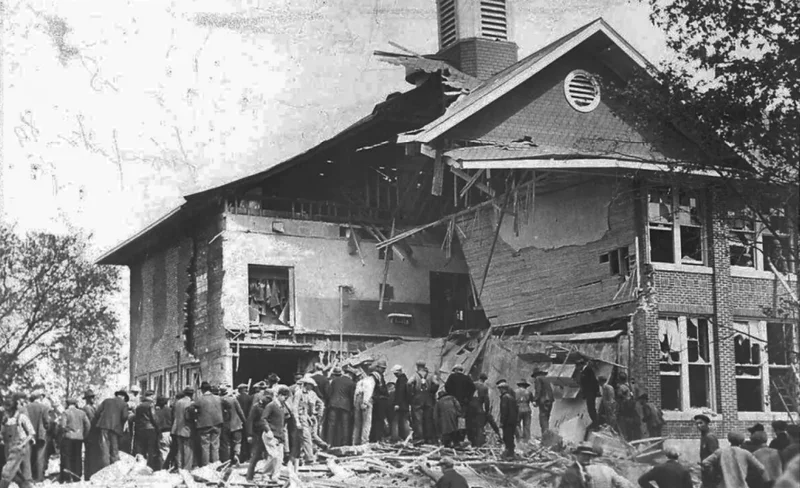
Disgruntled school board member Andrew Kehoe detonated bombs at Bath Township School in Michigan, killing 45 people including many children. The terrorist attack stemmed from financial disputes over school taxes.
Kehoe had planted explosives throughout the school building after losing his farm to foreclosure. This horrific act of domestic terrorism shocked rural America and highlighted economic desperation.
Transportation and Infrastructure on May 18
1980 – French TGV Achieves Speed Record
A specially modified TGV train set a new world rail speed record of 515.3 kilometers per hour on French tracks. This achievement demonstrated the revolutionary potential of high-speed rail technology.
French engineers had optimized both the train and track conditions for the record attempt. The success positioned France as the global leader in high-speed rail development.
Sports and Recreation on May 18
1953 – Jacqueline Cochran Breaks Aviation Barrier

Test pilot Jacqueline Cochran became the first woman to break the sound barrier in level flight. Her historic achievement opened new frontiers for women in aviation and aerospace.
Flying a Canadian-built F-86 Sabre jet, Cochran reached supersonic speeds over California. Her pioneering flight inspired generations of female pilots and aerospace engineers.
Notable Births on May 18
1920 – Pope John Paul II Born

Karol Józef Wojtyła was born in Wadowice, Poland, destined to become one of history’s most influential religious leaders. His early life was marked by tragedy and the challenges of Nazi occupation.
The future pontiff would serve as Pope from 1978 to 2005, transforming the Catholic Church’s global reach. His papacy helped end communist rule in Eastern Europe and promoted interfaith dialogue.
1912 – Perry Como Born
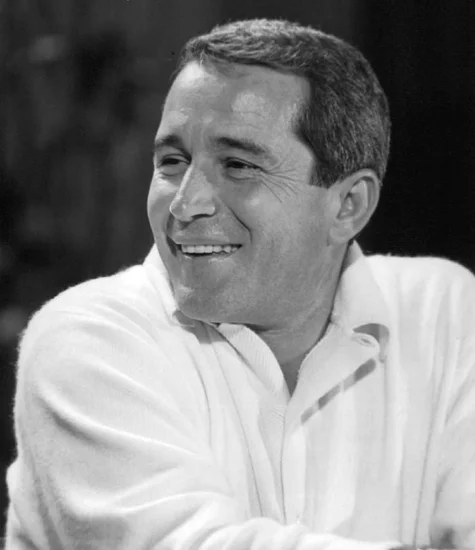
Pierino Ronald Como entered the world in Canonsburg, Pennsylvania, beginning a journey toward becoming America’s beloved crooner. His parents were Italian immigrants who instilled strong family values.
Como’s relaxed singing style and warm television presence made him a household name for decades. His career spanned radio, recordings, and television, earning him the nickname “Mr. C.”
1970 – Tina Fey Born

Elizabeth Stamatina Fey was born in Upper Darby, Pennsylvania, future comedy writer and actress. Her childhood experiences shaped her satirical worldview and comedic sensibilities.
Fey would revolutionize television comedy through “Saturday Night Live” and “30 Rock.” Her sharp wit and feminist perspective influenced a generation of comedy writers.
1946 – Reggie Jackson Born

Reginald Martinez Jackson was born in Wyncote, Pennsylvania, destined to become baseball’s “Mr. October.” His athletic talents emerged early despite challenging family circumstances.
Jackson’s clutch hitting in postseason games earned him legendary status in baseball history. His colorful personality and home run power made him one of the sport’s most recognizable figures.
1975 – Jack Johnson Born

Jack Hody Johnson was born in Oahu, Hawaii, future singer-songwriter and environmental activist. His upbringing in Hawaii’s surf culture deeply influenced his musical style.
Johnson’s acoustic folk-rock sound and environmental consciousness resonated with audiences worldwide. His music career paralleled his commitment to sustainable living and ocean conservation.
1086 – Chow Yun-fat Born

Chow Yun-fat was born in Lamma Island, Hong Kong, destined to become an international film star. His humble beginnings on a fishing island shaped his down-to-earth personality.
Chow’s collaboration with director John Woo revolutionized action cinema in the 1980s. His charismatic performances in films like “The Killer” made him a global icon.
1908 – Fred Perry Born

Frederick John Perry was born in Stockport, England, future tennis champion and sportswear entrepreneur. His working-class background motivated his determination to succeed.
Perry became the first person to win all four Grand Slam tournaments and later founded the iconic Fred Perry clothing brand. His achievements broke class barriers in British tennis.
1952 – George Strait Born

George Harvey Strait was born in Poteet, Texas, destined to become the “King of Country Music.” His rural upbringing instilled deep appreciation for traditional country values.
Strait’s authentic style and record-breaking career made him country music’s most successful artist. His 60 number-one hits and traditionalist approach influenced countless country musicians.
Notable Deaths on May 18
1911 – Gustav Mahler Dies
Legendary Austrian composer and conductor Gustav Mahler passed away in Vienna at age 50. His revolutionary symphonies and song cycles transformed classical music composition.
Mahler’s emotional intensity and orchestral innovation influenced countless future composers. His works bridged the Romantic and modern eras of classical music.
1980 – Ian Curtis Dies

Joy Division frontman Ian Curtis committed suicide in Manchester at age 23, shocking the music world. His death occurred on the eve of the band’s first American tour.
Curtis’s haunting lyrics and distinctive vocal style helped define post-punk music. His tragic death elevated Joy Division to legendary status in alternative rock history.
1981 – William Saroyan Dies
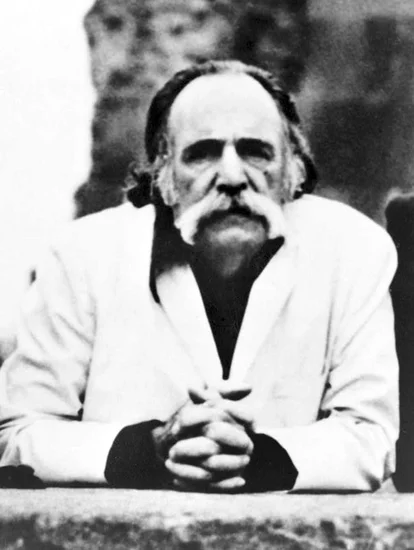
Pulitzer Prize-winning author William Saroyan passed away in Fresno, California, at age 72. His novels and plays celebrated Armenian-American immigrant experiences.
Saroyan’s optimistic humanism and distinctive narrative voice influenced American literature. His works like “The Human Comedy” captured the immigrant experience with warmth and wisdom.
1995 – Elizabeth Montgomery Dies

Beloved actress Elizabeth Montgomery passed away in Beverly Hills at age 62 from colorectal cancer. Her portrayal of Samantha Stephens in “Bewitched” made her a television icon.
Montgomery’s comedic timing and charm delighted audiences for eight seasons. Her later dramatic work in television movies showcased her versatility as an actress.
2017 – Chris Cornell Dies

Soundgarden and Audioslave frontman Chris Cornell died by suicide in Detroit at age 52. His powerful voice and songwriting helped define grunge and alternative rock.
Cornell’s four-octave vocal range and emotional depth influenced a generation of rock musicians. His death marked the loss of one of rock’s most distinctive voices.
2023 – Jim Brown Dies

NFL legend and civil rights activist Jim Brown passed away at age 87 in Los Angeles. His athletic achievements and social activism made him a towering figure in American sports.
Brown’s dominance as a running back revolutionized football, while his activism advanced civil rights causes. His legacy encompasses both athletic excellence and social justice leadership.
Holidays and Observances on May 18
International Museum Day
Museums worldwide celebrate International Museum Day, promoting cultural heritage and education. This annual observance highlights museums’ vital role in preserving human history and knowledge.
Cultural institutions organize special exhibitions, free admission days, and educational programs. The celebration emphasizes museums’ importance in fostering cross-cultural understanding and lifelong learning.
Independence Day in Somaliland

The Republic of Somaliland commemorates its unilateral declaration of independence from Somalia in 1991. This unrecognized state celebrates its stable democratic governance despite lacking international recognition.
Somaliland’s independence day highlights its successful state-building efforts amid regional chaos. The celebration emphasizes the territory’s democratic achievements and peaceful development.
Day of Remembrance of Crimean Tatar Genocide
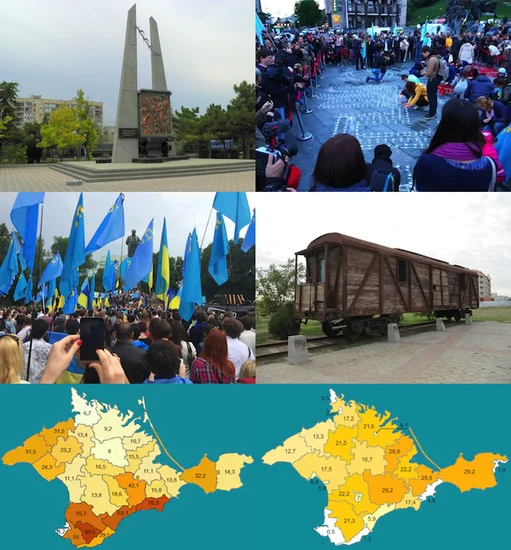
Ukraine observes the Day of Remembrance of Crimean Tatar Genocide, commemorating Stalin’s 1944 deportation of the entire Crimean Tatar population. This solemn observance honors the victims of Soviet ethnic cleansing.
The day remembers the thousands who died during forced deportation to Central Asia. Modern Ukraine recognizes this tragedy as genocide and supports Crimean Tatar rights.
